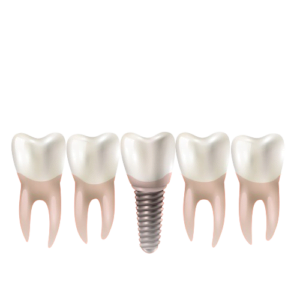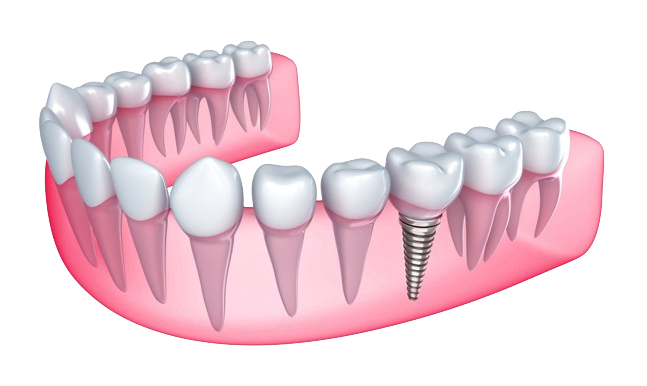Dental Implant Surgery, Procedure.

Dental implants have revolutionized the field of restorative dentistry. They offer a permanent solution for tooth loss, providing both functional and aesthetic benefits. The procedure involves the surgical placement of an implant into the jawbone. This implant acts as an artificial root, providing a stable foundation for a replacement tooth. Understanding the intricacies of dental implant surgery is crucial for potential patients. It allows them to make informed decisions about their oral health.
This article delves into the world of dental implants. It explores the procedure, post-operative care, and the factors influencing the cost, particularly in India. We also discuss how to find affordable dental implant options Like Bookurdentist Dental clinic This information is vital for those considering this form of tooth restoration. Whether you’re a dental professional or a potential patient, this comprehensive guide will provide valuable insights. It aims to demystify the process of dental implant surgery and its associated costs.
Join us as we navigate the complexities of dental implant surgery. We aim to provide a thorough understanding of this transformative dental procedure.
Understanding Dental Implants and Their Purpose
Dental implants serve as a solution for tooth loss, a common issue affecting millions worldwide. They are designed to mimic the structure and function of natural teeth. Implants consist of a titanium post surgically inserted into the jawbone. This post acts as an artificial tooth root, providing a stable base for the replacement tooth. The biocompatible nature of titanium allows it to fuse with the bone, a process known as osseointegration. The purpose of dental implants extends beyond aesthetics. They help maintain the structural integrity of the jawbone, preventing bone loss often associated with missing teeth. Dental implants also improve chewing efficiency, contributing to better nutrition and overall health. They offer a long-term solution for tooth restoration, enhancing the quality of life for many patients.
The Anatomy of a Dental Implant
A dental implant is a complex structure, designed to replicate the function and appearance of a natural tooth. It consists of three main components, each serving a specific purpose.
The Implant:
This is a titanium screw that serves as a root for your new tooth. It’s inserted into the jawbone during surgery.
The Abutment:
This is a connector placed on top of the implant. It holds and supports the crown.
The Crown:
This is the part of the implant that looks like a tooth. It’s usually made of porcelain for a natural appearance.
Pre-Surgical Considerations and Initial Consultation
Before proceeding with dental implant surgery, several factors need to be considered. The patient’s overall health, oral hygiene, and the condition of the jawbone are all crucial elements that can influence the success of the procedure. A comprehensive dental examination, including dental X-rays and 3D images, is typically conducted to assess these factors. The initial consultation also involves a thorough review of the patient’s medical history. Certain systemic conditions, such as diabetes or heart disease, can affect the healing process post-surgery. Lifestyle habits, such as smoking, can also impact the success of the implant. It’s essential for patients to disclose all relevant information to their dental surgeon during this consultation. The consultation provides an opportunity for the dental surgeon to explain the procedure in detail. It’s a chance for patients to ask questions and express any concerns they may have. This open communication helps ensure that patients are fully informed and comfortable with the planned procedure.
The Dental Implant Procedure: A Step-by-Step Guide
The dental implant procedure is a multi-step process that requires precision and expertise. It begins with the surgical placement of the implant into the jawbone. This is followed by a healing period, during which the implant integrates with the bone in a process known as osseointegration. Once the implant is stable, the abutment and crown are placed. The steps involved in the dental implant procedure are as follows:
- Surgical placement of the implant
- Healing period and osseointegration
- Placement of the abutment
- Placement of the crown
- Anesthesia and Sedation Options
The dental implant procedure is performed under local anesthesia to numb the area and ensure patient comfort. In some cases, sedation may also be used to help patients relax during the procedure. The type of sedation used can range from oral sedation to intravenous sedation, depending on the patient’s preference and the complexity of the procedure. It’s important for patients to discuss their anesthesia and sedation options with their dental surgeon. This ensures that the procedure is as comfortable and stress-free as possible.
Osseointegration: The Key to Stability
Osseointegration is a critical part of the dental implant procedure. This is the process by which the dental implant fuses with the jawbone, providing a stable foundation for the artificial tooth. The healing period for osseointegration can vary from patient to patient, typically ranging from a few weeks to several months.
Successful osseointegration is crucial for the long-term success of the dental implant. It ensures that the implant is secure and can withstand the forces of biting and chewing.
Abutment and Crown Placement
Once osseointegration is complete, the abutment is attached to the implant. The abutment serves as the connection between the implant and the artificial tooth. After the abutment is placed, an impression of the patient’s mouth is taken to create the custom-made crown. The crown is the visible part of the tooth that is designed to look and function like a natural tooth. Once the crown is ready, it is attached to the abutment, completing the dental implant procedure.
Post-Operative Care: Do's and Don'ts After Surgery
Post-operative care is crucial to the success of dental implant surgery. Proper care can help prevent complications, promote healing, and ensure the longevity of the implant. It’s important for patients to follow their dental surgeon’s instructions closely during the recovery period.
Here are some general do’s and don’ts after dental implant surgery:
- Do maintain good oral hygiene by brushing and flossing regularly.
- Do eat soft foods and avoid hard, crunchy, or sticky foods.
- Do take prescribed medications as directed.
- Don’t smoke or use tobacco products, as they can delay healing.
- Don’t drink alcohol, as it can interfere with the healing process.
- Don’t skip follow-up appointments with your dental surgeon.
Remember, these are general guidelines and your dental surgeon may provide additional or different instructions based on your specific situation. Always follow the advice of your dental professional for the best outcome.
Risks and Complications of Dental Implant Surgery
Like any surgical procedure, dental implant surgery carries some risks and potential complications. While the success rate of dental implant surgery is high, it’s important for patients to be aware of the potential risks involved. These may include infection at the implant site, injury or damage to surrounding structures, nerve damage resulting in pain or numbness, sinus problems for implants placed in the upper jaw, and implant failure. It’s crucial to discuss these risks with your dental surgeon prior to the procedure to make an informed decision.
The Lifespan of Dental Implants: Maintenance and Longevity
Dental implants are renowned for their durability and longevity. With proper care and maintenance, they can last for many years, often for a lifetime. This makes them a cost-effective solution for tooth restoration in the long run. However, the longevity of dental implants also depends on factors such as the patient’s oral hygiene, overall health, and lifestyle habits. Regular dental check-ups, good oral hygiene practices, and a healthy lifestyle can significantly enhance the lifespan of dental implants.
Teeth Implant Price in India: Cost Factors and Affordability
The cost of dental implants in India can vary widely. This is due to several factors, including the surgeon’s expertise, the quality of the implant material, and the complexity of the patient’s case. It’s important to note that while cost is a significant consideration, it should not be the sole determinant in choosing a dental implant provider. In India, the price of dental implants is often more affordable than in many Western countries. This is due to lower operating costs and the availability of high-quality, locally manufactured implant materials. However, patients should be wary of prices that seem too good to be true, as this could indicate substandard materials or inexperienced surgeons. Insurance coverage for dental implants can also vary. Some insurance plans may cover a portion of the cost, while others may not cover dental implants at all. It’s important for patients to thoroughly understand their insurance coverage and consider all potential out-of-pocket costs.
Finding Affordable Dental Implants Near Me
Finding affordable dental implants near you requires careful research and consideration. Start by consulting with your dentist or oral surgeon, who can provide recommendations based on your specific needs and budget. Bookurdentist Online research can also be helpful. Its provide dental clinics in your area that specialize in dental implants. Check their reviews and ratings, and don’t hesitate to schedule consultations with multiple providers. compare prices, Bookurdentist offer dental implant at INR 6,999 Only. Expert Implantologist, and patient experiences to make an informed decision. Remember, the goal is to find a balance between affordability and quality care.
The Impact of Surgeon Expertise and Material Quality
The expertise of the surgeon plays a crucial role in the success of dental implant surgery. An experienced surgeon can accurately assess the patient’s needs, plan the procedure meticulously, and execute it with precision. They can also effectively manage any complications that may arise during or after the surgery. Therefore, it’s essential to choose a surgeon with extensive experience and a proven track record in dental implant procedures. The quality of the implant material is another significant factor. High-quality materials, typically made from titanium or zirconia, ensure the durability and longevity of the implant. They are also biocompatible, reducing the risk of allergic reactions or rejection by the body. Therefore, while considering the cost, patients should not compromise on the quality of the implant materials.
Conclusion: The Significance of Dental Implants in Tooth Restoration
Dental implants have revolutionized the field of tooth restoration, offering a durable, functional, and aesthetically pleasing solution for tooth loss. They not only restore the appearance of the smile but also preserve the health of the jawbone, preventing the bone loss that often accompanies tooth loss. In conclusion, while the process of dental implant surgery may seem complex, the benefits it offers are substantial. With careful planning, skilled execution, and diligent post-operative care, dental implants can provide a long-lasting solution for tooth loss, significantly enhancing the quality of life for patients.

